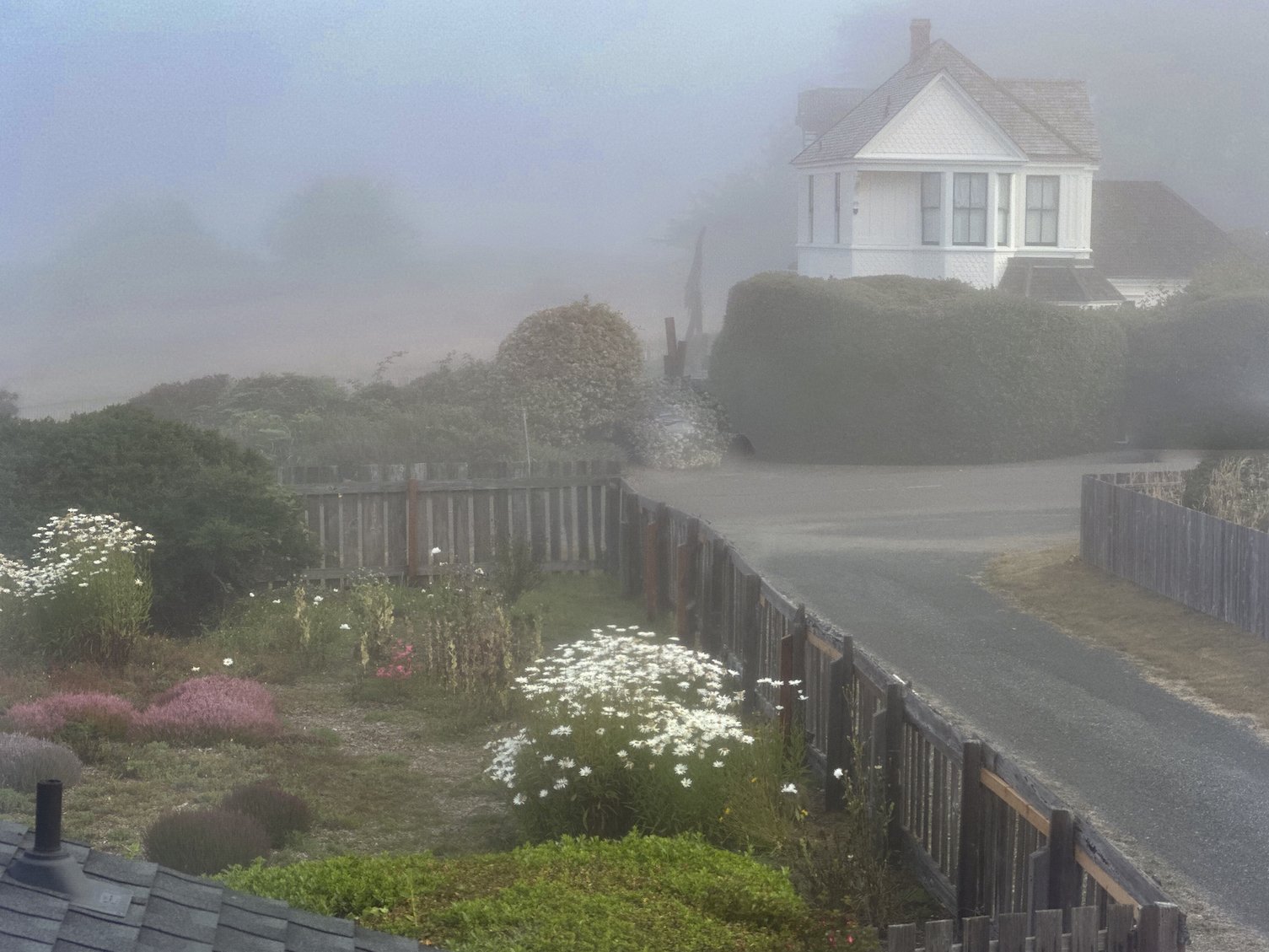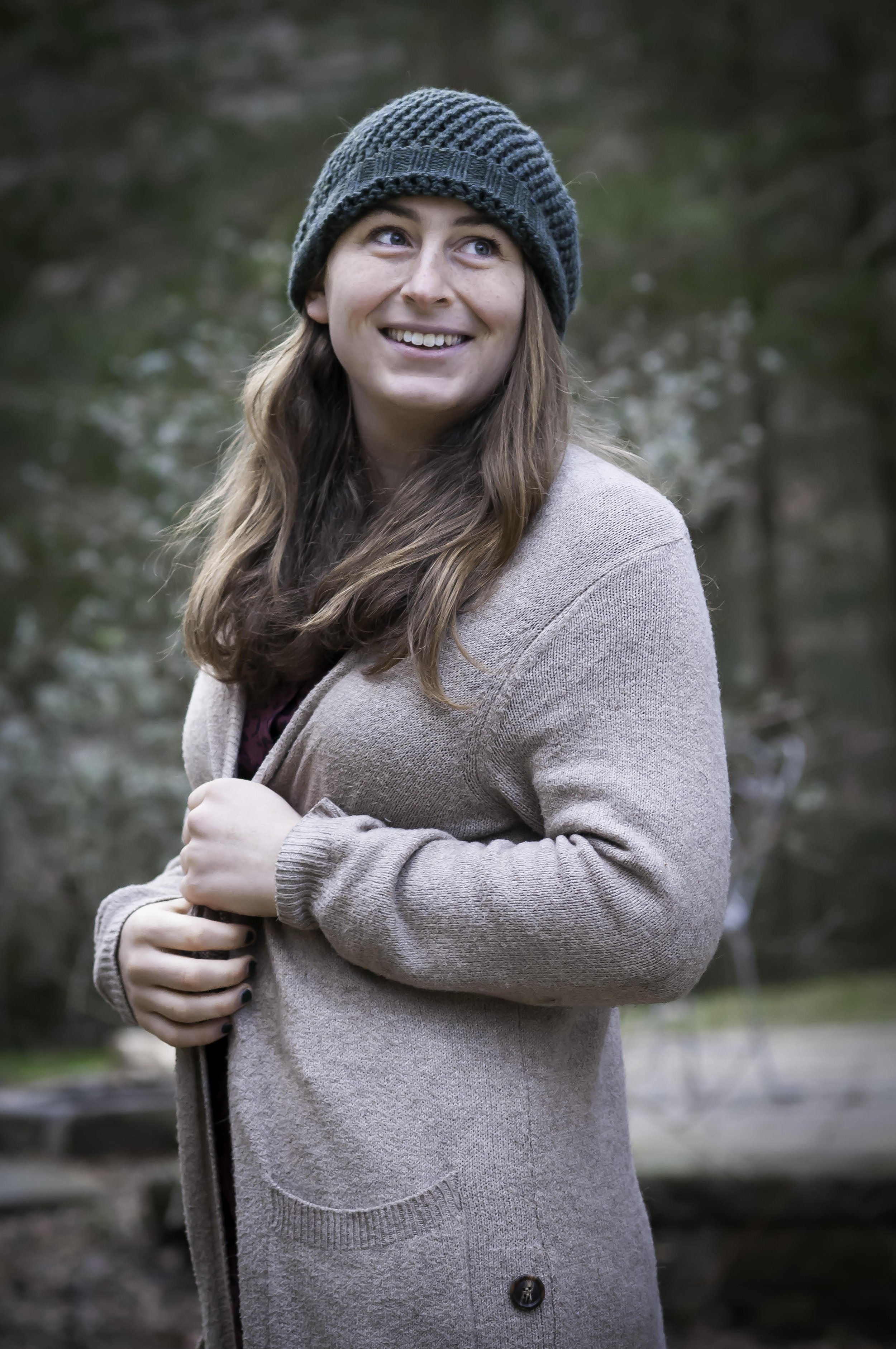20% OFF SELECT WORKSHOPS!
We still have a few spots left in our workshops and we’re excited to share that while supplies last, we are offering 20% off registration on these workshops:
Nonfiction Workshop with Jessica Ferri
Speculative Fiction with Nic Anstett
Use code MCWC20! at checkout to redeem the discount. But hurry - this offer is only available while supplies last or until general Registration for MCWC 2024 closes on June 30!
JOIN US FOR AN IG CONVERSATION!
MCWC Executive Director Lisa Locascio Nighthawk will be in conversation with MCWC 2024 Creative Nonfiction Faculty Jessica Ferri live on the Womb House Books Instagram @wombhousebooks at 3 pm PDT on Tuesday June 11! Tune in to hear Lisa and Jessica discuss their work as writers and Jessica’s upcoming Creative Nonfiction workshop at MCWC 2024.
15% OFF YOUR STAY AT NICHOLSON HOUSE
Get inspired with a stay at Nicholson House during your Mendocino Coast Writers' Conference immersion. As one of Mendocino's original grand Victorians, Nicholson House has a long history and holds many a tale of its own. The historic Victorian is now a boutique hotel offering bespoke, design-forward accommodation that is state of the art and conveniently situated in the Mendocino Village.
Offering special MCWC participant rates for the 2024 conference -- 15% off your stay of four nights for MCWC or stretch it out, and stay a 5th night to get one night free!
Call 707.937.0312 and mention you're a MCWC participant or simply include it in the notes when booking online.
THANK YOU TO OUR DONORS!
We couldn’t do this conference without the support of our donors. Thank you to all of you who have made a donation, whatever the size!
If you would still like to give, we could use your help! We are in our final stretch of this year’s fundraising and every penny counts. Your gift helps support the conference operations, participant scholarships (announcement coming soon!), and helps us build and sustain a vibrant, relevant writing community in a time when we need it more than ever.
Q&A WITH MCWC 2024 SPECULATIVE FICTION FACULTY NIC ANSTETT
We sat down with MCWC 2024 Speculative Fiction Faculty, Nic Anstett, and asked a few questions...
I love this sentence from the bio on your website: "Nic loves dinosaurs, cryptids, campy roadside attractions, the messiest juiciest gossip, and queerhorrorscifiactionthrillerromance movies.” Can you talk about how these interests, and more broadly your taste itself, influences your writing and teaching? How would you introduce yourself and your work to writers interested in working with you at MCWC 2024?
I think in a very broad sense I've always been attracted to things that exist in a space between the known and unknown. I mean, if you were to ask me why I like dinosaurs and cryptids, my simple reply would simply be "because they're cool," but what makes them cool is this inherent mystery about them. Dinosaurs are these incredible, almost alien, animals whose existence we can demonstrably prove and whom we can learn so much about through science, but we will never have the ability to understand them in the same way we might a dolphin or a cat. They're like ecological ghosts almost. In contrast, cryptids are these fantastical and (as much as I wish this wasn't the case) likely imaginary folklore creatures who are inserted into our current world. I think I sort of see a lot of this in my love for gossip too. Gossiping to me kind of feels like unraveling social mysteries. And I think this all kind of plays into what makes me enjoy campy roadside tourist traps of genre films, which at their best can feel like unabashed and shameless attempts to put these mysteries on display for entertainment. I appreciate reading up on the latest developments in paleontology, but few things bring me more joy than when I'm pulling my car over to get a picture with a giant fiberglass T-Rex statue.
I think this is something I like to keep in mind with my teaching and writing. Writing fiction, especially speculative fiction, is about unraveling mystery for yourself and the reader. And, in my experience, the success of that often comes through when you lean into the play of it all. Even though I like to write, read, and teach texts that I think are sometimes dour or politically tense, I do think the best writing comes through shameless attempts at trying to capture the unknown or mysterious. This means allowing your writing, especially your early drafts, to be a bit weird, challenging, or messy. I also find that typically grounding my writing in something a little bit off kilter or strange gives me better access to some of the heavier themes or concepts I want to address.
How would you describe your speculative writing workshop to a writer curious about it?
I've always loved reading fiction that bends or abandons our reality, regardless of whether that work is speculative in the science fiction sense or something more fantastical or surreal. I guess it's no surprise that my own writing often ends up being more than a little weird, but I've also found that speculative fiction has allowed me to explore themes that I don't know if I would be able to access otherwise. Sometimes the emotional, personal, or political truth that you are chasing is too big or opaque to be captured in a story that adheres too closely to the familiar. For me, truly great speculative fiction results from a writer perfectly marrying conceit with humanity and that's what I hope my workshop will tackle. While we absolutely discuss and review how to develop plot, character, and conceits for speculative fiction, the primary goal will be in creating and revising writing that is finding the human in the bizarre and fantastic.
What are you hoping participants of your MCWC workshop will get out of the time they spend with you?
I think the least helpful thing any writing workshop can do is to act like there are strict rules to creative or professional success in literature. Learning and practicing craft undeniably helps, but that hardly matters if you aren't writing work that feels true to your own aesthetic and personal tastes. I want participants in my workshop to leave feeling like they have a stronger sense of what their own creative voice is and how to authentically bring their own particular unrealities to the page.
How does teaching figure into your writing practice?
It's corny, but I really do think that fiction writing is a muscle that you have to keep in shape. Sometimes that means reading or writing regularly, and sometimes that just means talking about literature and craft. Teaching keeps me engaged with my art in a way that I'm not sure I'd always make sure to prioritize otherwise. There's also just something incredibly exciting about engaging with work from emerging writers, who I find are often producing really exciting and unique fiction that older, more jaded writers would never think to create.
Do you practice any creative rituals or routines that help you create your work?
It took me far too long to realize that my writing brain is strongest before 1pm. Part of that likely has to do with being freshly pumped full of coffee, but I really do feel like my creative energy and focus are best before lunch. I'm also a fan of writing in places outside of my home. Oddly enough, my ADHD is triggered far more often when I'm working in my living room than when I am writing in a crowded cafe. So getting out of the house in the morning is essential. Which is hard. I'm not the best at it. But when I can drag myself out of bed and down the street, that's when I'm in my zone.
Who/what are your key influences and sources of inspiration?
I, like many people, was absolutely blown away by Carmen Maria Machado's collection of short stories, Her Body and Other Parties. The things Machado's stories are able to pull off not only narratively but with form and prose inspired me to be a bit more risk taking when it came to my own work. In general, I'm always taken by writers that use the speculative or fantastic to explore more personal or political themes. Some who I keep returning to include Nathan Ballingrud, Stephen Graham Jones, K-Ming Chang, Nana Kwamae Adjei-Brenyah, Megan Kamalei Kakimoto, Allison Rumfitt, and Karen Russell. I know that's a long list and I promise you that's the truncated one.
I'm also being a massive cliche right now, but I also feel like I've learned a lot from Ethel Cain's narrative album "Preacher's Daughter." Music normally isn't a source of inspiration when it comes to my fiction, but "Preacher's Daughter" manages to blend so many different genres, voices, and themes together in a way that feels cohesive but also incredibly expansive. I'd love to write a book that manages to capture even a little bit of that.
Which talent would you most like to have?
I very much wish that I could sing. I am very proud of my uncoordinated and flailing dance style, but it would be great if I could belt along to Dua Lipa with that same level of confidence.






